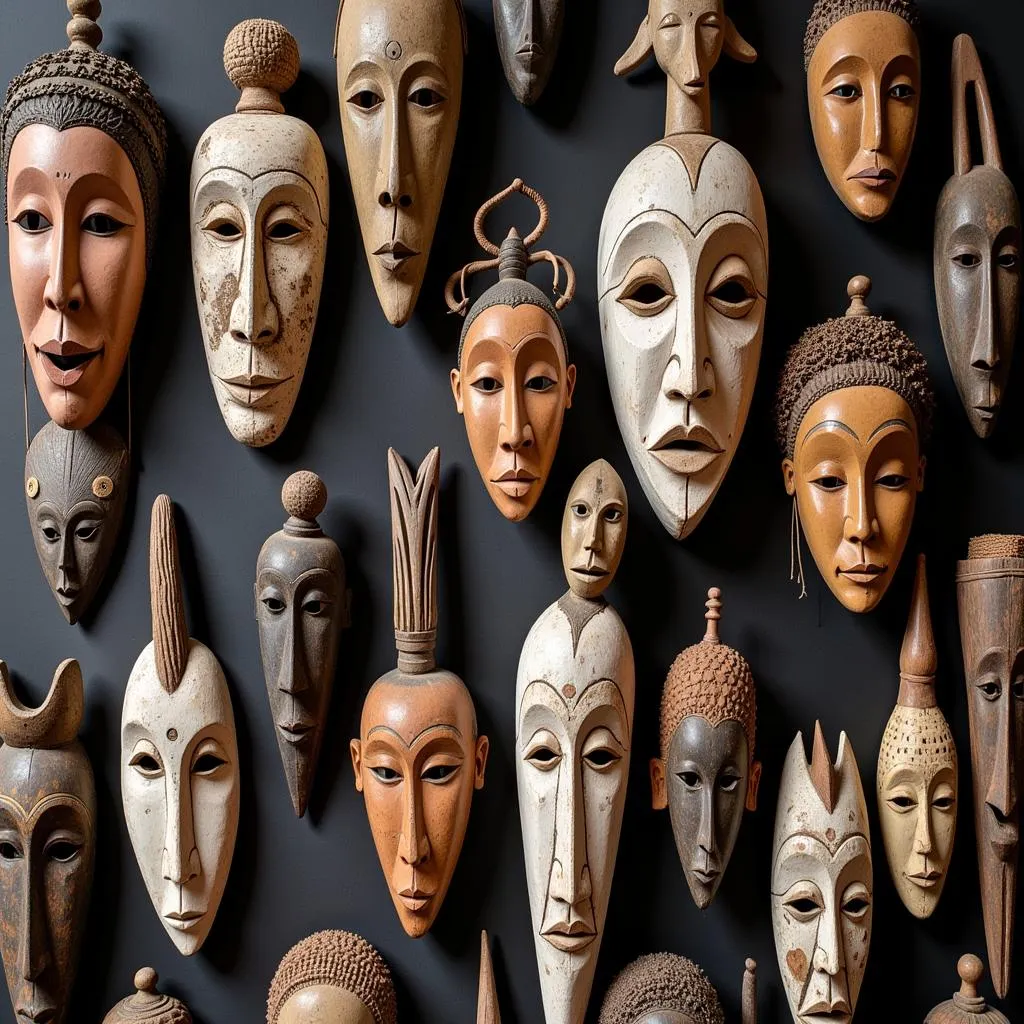The African Killer Wasp: Myths, Facts, and How to Stay Safe
The African Killer Wasp, a term often used sensationally, evokes fear and curiosity. This article delves into the truth behind this formidable insect, exploring its behavior, habitat, and the potential dangers it poses, while also dispelling common misconceptions.
Understanding the “Killer” Reputation
The term “African killer wasp” is often used indiscriminately to refer to several species of wasps found in Africa, most notably the Pepsis wasp and the Synagris wasp. These wasps are large and imposing, with powerful stings that can be incredibly painful. However, their aggressive “killer” reputation is often exaggerated. They are primarily predators of other insects and spiders, and rarely sting humans unless provoked. Their venom, while potent, is not typically fatal to humans unless there is an allergic reaction.
The Pepsis Wasp: A Fearsome Predator
Pepsis wasps, also known as tarantula hawks, are solitary hunters that specialize in capturing tarantulas. They are large, with some species reaching up to two inches in length. Their sting is considered one of the most painful insect stings in the world, but the pain is thankfully short-lived, lasting only a few minutes.
The Pepsis wasp doesn’t actively hunt humans. Its sting is primarily a defense mechanism or a tool for hunting its prey. Unless you directly threaten it or its nest, you are unlikely to be stung.
The Synagris Wasp: Architects of the Insect World
Synagris wasps, often referred to as mud-dauber wasps, are known for their intricate mud nests. They are less aggressive than Pepsis wasps and pose a minimal threat to humans. Their sting is significantly less painful and is used primarily for subduing prey, such as caterpillars, which they feed to their larvae.
Debunking the Myths
Many myths surround the African killer wasp. Some claim that a single sting can kill a human or that they are highly aggressive and attack unprovoked. These are exaggerations. While their stings are painful, they are not typically life-threatening unless the individual is allergic. They are not inherently aggressive and will only sting in self-defense.
What to Do if Stung
If you are unfortunate enough to be stung by an African killer wasp, the pain will be intense but usually subsides within a few minutes. Clean the sting site with soap and water and apply a cold compress to reduce swelling. Over-the-counter pain relievers can help manage the discomfort. If you experience any signs of an allergic reaction, such as difficulty breathing, swelling of the face or throat, or dizziness, seek immediate medical attention.
Living Alongside African Wasps
African wasps, including the Pepsis and Synagris, play an essential role in the ecosystem. They control insect populations and help maintain the balance of nature. Understanding their behavior and respecting their space is the key to peaceful coexistence. Avoid disturbing their nests and refrain from swatting at them. Admire them from a distance and appreciate their role in the African landscape.
“These wasps are fascinating creatures. Their behavior, while sometimes intimidating, is crucial to the ecosystem. Understanding their role can help dispel fear and promote respect.” – Dr. Khadija Mohamoud, Entomologist, University of Nairobi
“The pain from a Pepsis wasp sting is intense, but it’s rarely dangerous. The best approach is to avoid disturbing them and appreciate their unique role in nature.” – Dr. Adebayo Olajide, Wilderness Medicine Specialist, Lagos, Nigeria
Conclusion
The African killer wasp, while deserving of caution, should not be a source of undue fear. Understanding their behavior, respecting their space, and knowing what to do in case of a sting can allow us to appreciate these fascinating insects without unnecessary anxiety. By dispelling the myths and focusing on the facts, we can foster a healthier relationship with the natural world around us.
FAQ
- What is the most painful wasp sting in Africa? The Pepsis wasp, or tarantula hawk, is considered to have one of the most painful stings.
- Are African killer wasps aggressive? They are not inherently aggressive and usually only sting when threatened.
- What should I do if stung by a Pepsis wasp? Clean the area, apply a cold compress, and take pain relievers. Seek medical attention if you have an allergic reaction.
- What do African killer wasps eat? They primarily prey on other insects and spiders. Pepsis wasps specialize in hunting tarantulas.
- Where do African killer wasps live? They are found throughout various habitats in Africa.
- Are African killer wasps endangered? While specific population data is limited, they are not currently listed as endangered.
- How can I avoid being stung by an African killer wasp? Avoid disturbing their nests and refrain from swatting at them.
Suggested Further Reading
- “The Wonderful World of African Insects” (hypothetical article link within the website)
- “Understanding Wasp Behavior” (hypothetical article link within the website)
For any assistance or further inquiries, please contact us at Phone Number: +255768904061, Email: [email protected], or visit us at Mbarali DC Mawindi, Kangaga, Tanzania. We have a 24/7 customer service team ready to assist you.

